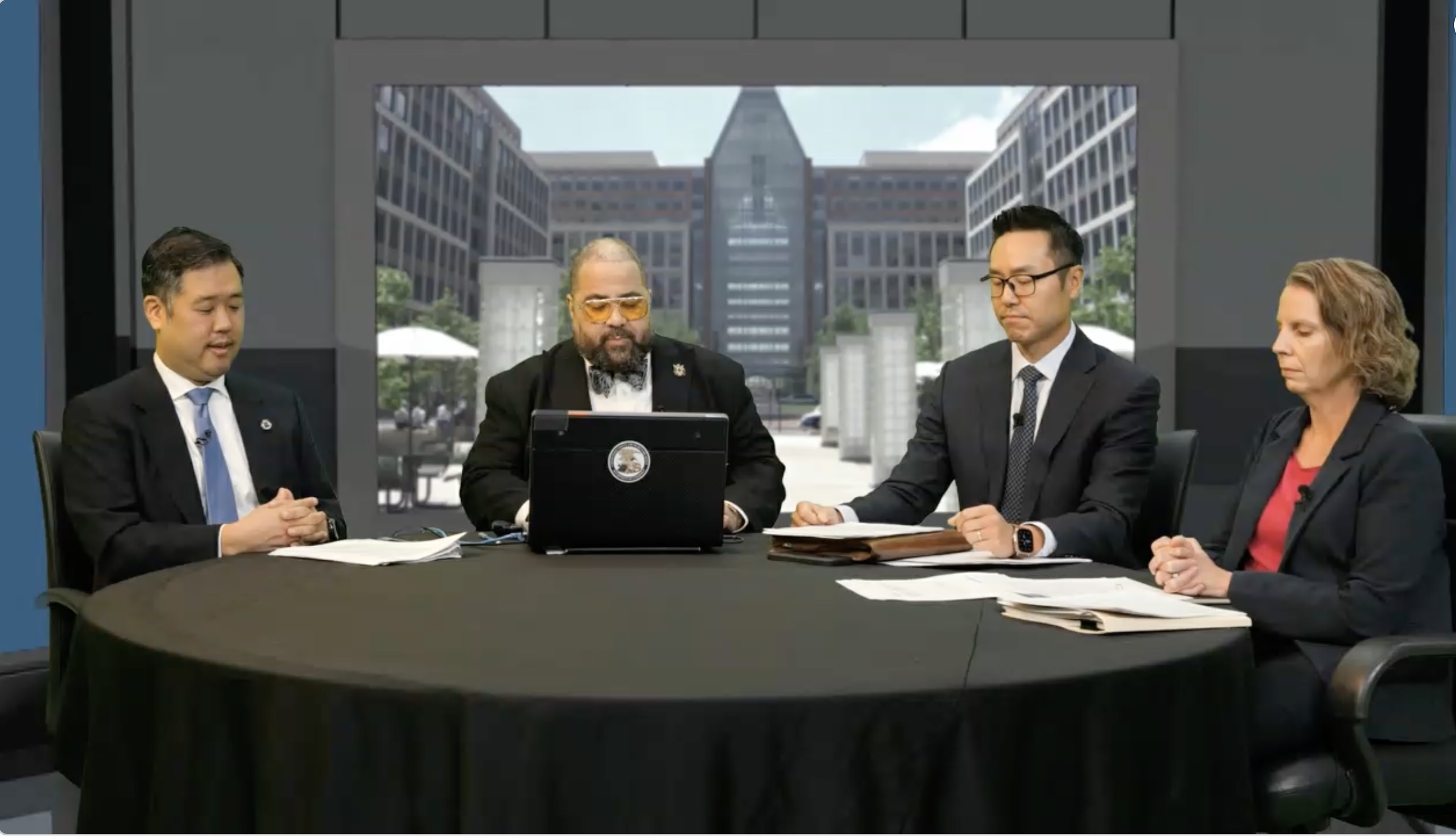“The agreement establishes pricing of $0.47 per year, per agency, for Google’s AI tools and represents the latest development in the Trump Administration’s initiative to accelerate AI adoption under the administration’s AI action plan.”
 The U.S. General Services Administration (GSA) today announced an agreement with Google for the “Gemini for Government” platformto provide federal agencies with access to Google’s artificial intelligence and cloud services at discounted rates.
The U.S. General Services Administration (GSA) today announced an agreement with Google for the “Gemini for Government” platformto provide federal agencies with access to Google’s artificial intelligence and cloud services at discounted rates.
‘Gemini for Government’
Gemini is Google’s flagship generative AI chatbot, supporting text, image, video, and code generation across multiple platforms, including Gmail, Docs, Sheets, and Meet. Under the GSA agreement, which is valid through 2026, agencies can access Google’s AI-optimized and accredited commercial cloud services, Gemini models, and agentic capabilities. The agreement establishes pricing of $0.47 per year, per agency, for Google’s AI tools and represents the latest development in the Trump Administration’s initiative to accelerate AI adoption under the administration’s AI action plan.
Federal agencies will gain access to enterprise search functionality, video and image generation tools, and the NotebookLM AI platform. According to the agreement, it includes pre-packaged AI agents for in-depth research and idea generation, along with capabilities that enable federal workers to develop custom AI agents tailored to their specific operational needs. These tools aim to streamline complex workspaces, improve efficiency, and reduce the time required for data analysis.
The deal builds on GSA’s prior OneGov arrangement with Google, which provided Google Workspace to federal agencies at a 71% price reduction on April 10, 2025.
Alignment with the AI Action Plan
The Trump Administration’s AI Action Plan, titled “Winning the AI Race: America’s AI Action Plan,” released on July 23, 2025, utilizes federal agencies to accelerate the adoption of U.S. based AI tools and provides ample flexibility to customize models to their own needs. The plan established three primary objectives: accelerating AI innovation, building American AI infrastructure, and leading international AI diplomacy.
The “Gemini for Government” agreement aligns priorities by centralizing the procurement of commercial AI tools and cost-effective solutions in federal agencies, as outlined in the Administration’s April 2025 Executive Order. The agreement also emphasizes streamlined access to AI tools across multiple agencies, aiming to reduce administrative effort and standardize procurement processes. Karen Dahut, CEO of Google Public Sector, said the agreement includes“transparent pricing and a predictable path to realizing value, helping agencies future-proof their AI investments.”
USPTO Integration of AI
In July, the United States Patent and Trademark Office (USPTO) announced the launch of DesignVision. This AI-powered design patent image search tool enables design patent examiners to query industrial design databases from more than 80 global intellectual property registers. The USPTO has also utilized classification and prior art searches.
Provisions in “Gemini for Government” provide federal agencies with access to Google’s “natural language processing” (NLP) and multimedia AI tools. The platform features built-in data handling, privacy, security, and compliance features designed for use with sensitive government information.
Gemini and Intellectual Property Challenges
While Gemini has been positioned as an alternative to OpenAI and Anthropic, it has also experienced IP-related litigation.
In September 2024, a trademark lawsuit was filed in the U.S. District Court for the Northern District of California against Google’s rebranding from Bard to Gemini, which allegedly infringed on pre-existing marks. Gemini has also been the subject of copyright claims alleging that Google’s Imagen AI model training involved “copying billions of images without permission.”
Google’s motion to dismiss the claims is currently pending, highlighting the ongoing legal uncertainty surrounding the use of generative AI systems.
The copyright cases are part of approximately a dozen lawsuits filed against AI companies in California and New York, reflecting broader industry-wide challenges for generative AI. Particularly for federal agencies such as the USPTO, the federal adoption of Gemini highlights these challenges, which rely on AI tools in contexts where IP rights are central.
Image Source: Deposit Photos
Image ID: 693812492
Author: visuals6x

![[IPWatchdog Logo]](https://ipwatchdog.com/wp-content/themes/IPWatchdog%20-%202023/assets/images/temp/logo-small@2x.png)

![[Advertisement]](https://ipwatchdog.com/wp-content/uploads/2025/08/LexisNexis-Nov-11-2025-sidebar-700x500-1.jpg)
![[Advertisement]](https://ipwatchdog.com/wp-content/uploads/2025/10/DeepIP-Nov-18-2025-sidebar-700x500-1.jpg)







![[Advertisement]](https://ipwatchdog.com/wp-content/uploads/2021/12/WEBINAR-336-x-280-px.png)
![[Advertisement]](https://ipwatchdog.com/wp-content/uploads/2021/12/Ad-4-The-Invent-Patent-System™.png)




Join the Discussion
One comment so far. Add my comment.
Model 101
August 22, 2025 03:45 amA very interesting article.
This is food for thought.
Add Comment